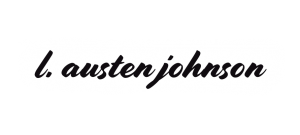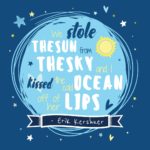
My review of Salt by Nayyirah Waheed:
Rating: 2.5 stars: “It was okay”
Waheed tackles some important and tough subjects like the African diaspora, motherhood, the ways in which feminism can benefit men, and sexual assault. She has some very quotable short poems but in general I found the collection to be a bit awkward to read through. The choppy lines hindered my reading of the poem, and at some points it was too straight-forward, and at other times, it felt like it was too purple, that I didn’t really know what she was trying to say. To be fair, I read it on Kindle, which is not the best way to digest poetry like this, so it may have been an easier reading on my eyes if I read the paperback.
***
The Good:
From “by the time we are seven”:
i place curses on my flesh
call them diets.
tell my ancestors
they are ugly.
howl at my nose until it bleeds.
run my heart across my teeth, repeatedly.
i am dying.
to be
beautiful.
At moments, her talent for imagery and rhythm shine, and her voice really shows. She has a strong emotional connection to the topics she’s discussing, and it shows. She also makes a point of encouraging young/new writers and other women writers of color.
I really liked the following poem, which I’ve seen shared on social media before:
‘no’
might make them angry.
but
it will make you free.– if no one has ever told you, your freedom is more important than their anger
It’s highly quotable, but I think unlike some of Waheed’s other poems, the line breaks add meaning and tone to “if no one…”. Another quote I like is from “the end of the world”:
the worst thing that ever happened
to
the world
was
the white man coming across gun powder.
It makes you think yikes and true at the same time. Waheed jumps between the largely external–issues like imperialism and transnationalism–and the personal–with descriptions of recovering from trauma and self-healing.
***
The Bad:
From “him”:
men give birth, too.
to children.
to longings.
to dreams.
that they must hide.
their stomachs.
their uteruses.
their hungers.
While the message of this poem and others about men learning to be “soft” (as she says) is a good one, the imagery of this poem seems off to me. Some men have uteruses, but most do not, and I don’t get the sense upon reading the rest of the collection and “him” that she’s talking about trans men. To me, this seems like an awkward way to talk about this subject. I’m also not a huge fan of the full-stop period at the end of the lines, because it made the syntax hard to parse. Are the men hiding their dreams? Or is it “they must hide / their stomachs” type of deal. If she wanted it to work for both ways, she could’ve just gotten rid of the “that.” She chooses awkward syntax and grammar like this throughout the collection (e.g. she writes in multiple places, “have ate” and “can not”–while the latter is pretty innocuous, the former actually made it hard for me to figure out how to read the poems).
I also didn’t like that she equated photography with cultural appropriation (in “a question of appropriation”). I think many people just want to capture memories from their trip so they can look back on it and remiscience. Personally, I like taking pictures even if I’m going one city over, let alone one state, one country, or one continent. I would be interested in hearing other people’s thoughts on this below, particularly POC.
And then, some of her writing I just don’t think is that strong. For example, I’m not a fan of the poem “fresh” (below).
there
are
feelings. you haven’t felt yet.
give them time.
they are almost here.–fresh
It seems a bit trite, and I don’t think that the poetic form adds to its impact at all. She could’ve easily included it in sentence form (as she does with some of her other short pieces).
***
The Confusing:
1. rub honey into the night’s back.
2. make sure the moon is fed.
3. bathe the ocean.
4. warm sing the trees.– tend
How she chooses to portray some of her imagery threw me a bit. I understand that this is a bit surrealist, but I didn’t know what this meant underneath it all. For example, with “bathe the ocean,” is she saying she thinks the ocean needs to cleansed? Surely this is a play with the phrase “bathe in the ocean, but the twisting of the phrase doesn’t seem to add meaning. I could also just be reading this poem incorrectly, so comments are more than welcome.
Another short example from an unnamed poem:
she was flower salt in my heart
What is “flower salt here”? Is it “flower-salt”? If so, I’ve never heard of it. Or is it more like “she was a flower, salt in my heart”? Maybe I do not have the socio-cultural background to understand some of Waheed’s turns of phrases like this one.
Overall, salt. is suitable for fans of Milk and Honey and, I think, non-“instapoets” like Warsan Shire. It wasn’t my cup of tea, but others will surely love it.


